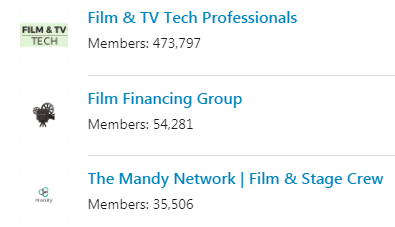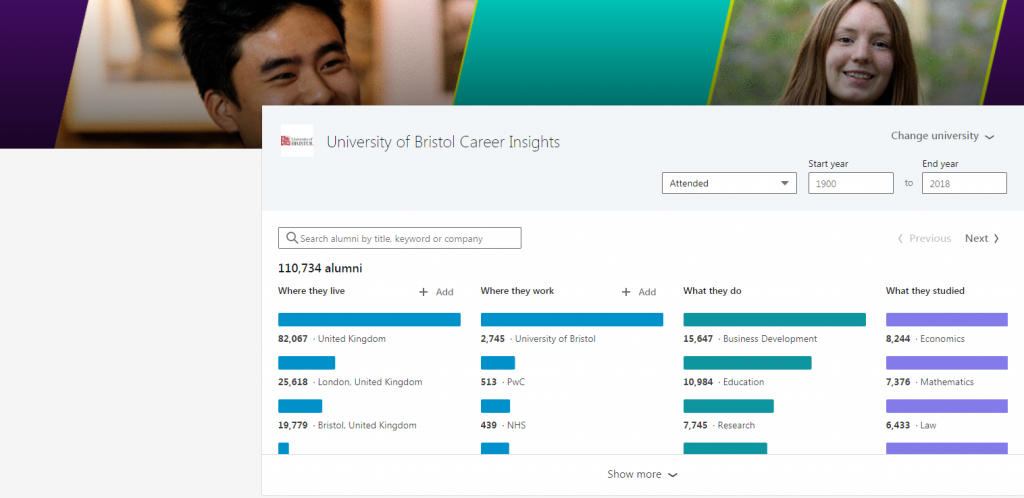 As you probably know, LinkedIn is a social media site for professionals on which you can host a kind of online CV.
As you probably know, LinkedIn is a social media site for professionals on which you can host a kind of online CV.
However, to really benefit from the site as a student it’s highly likely that you’ll need to actively use it to seek out opportunities, rather than hoping that the opportunities will come to you.
So, whilst it’s worth developing an “all-star profile” so the people you contact (or whose profiles you visit!) will quickly be able to get a sense of who you are and what you have to offer, LinkedIn will only really become useful to you if you actively use it to find potential employers.
Here are three tips on how to use LinkedIn to find relevant people and employers.
1. Use the “People” tab and filters to search for both. This tab is the most useful of the search tabs on LinkedIn because it has the most filters. Search for job titles you’re interested in, skills you’d like to use (e.g. “Python”), or names of sectors (such as “finance” or “computing”).
Use the “all filters” button currently at the top of the page to then narrow your search down to particular cities, company employees, university alumni – and more.

2. Join groups. Groups exist for many job sectors or roles and are a fantastic place to find people who work in a certain area and ask them questions – for example about what skills or experience you should seek in order to get into that sector, what it’s like working in a certain area, or if anyone knows of how you might get work experience.
Joining groups is also a great way to grow the amount of “connections” you have with other profiles. This improves your ability to see LinkedIn’s network, as you can only actually see profiles within three degrees of connection to your own!

3. Use the University of Bristol Alumni Tool to find the profiles of people who previously studied at the University. Amongst other things this can be sorted by where those people currently live or work, what they do, or what they studied, so it’s really useful both to get a sense of where you might take your career after graduation, and to find people you might want to reach out to!

Finally, you’re probably wondering what you should do if you find someone’s profile and you’d be interested in contacting them? Well, we’d recommend you always add a note when connecting with them to explain in a succinct manner why you’re getting in touch, and that you use your initial contact to ask questions rather than for work or work experience.
For more advice though see our Talk to alumni and professionals web page, come along to events we host on the subject, or book to speak to a Careers Adviser about how to sell yourself and phrase communications! See also the our Get started on LinkedIn page for more advice and information.
